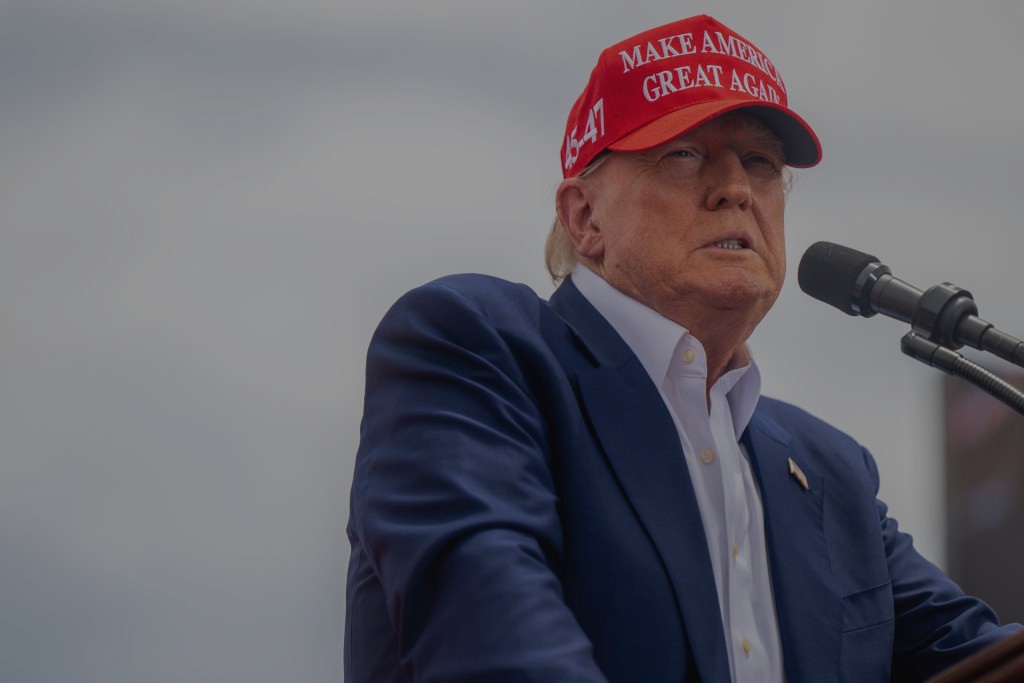
The Prudence of Presidential Immunity
This essay was originally published by American Mind on June 13, 2024.
Even Trump’s haters ought to consider the benefits of shielding him from prosecution.
The contemporary American Left is willing to go full scorched earth to win every tactical advantage, without thinking about the long-term consequences of the precedents that their “victories” will establish. This is especially a problem with the lawfare that they have chosen to wage, in which every outcome necessarily sets up a principle that can be invoked later on, in other contexts, by other actors, and for entirely different purposes than the ones the Left is trying to accomplish. This heedlessness is evident these days not only in their uncritical celebration of Donald Trump’s conviction in the New York bookkeeping case, but also in their denunciations of Trump’s argument for presidential immunity in the context of Special Counsel Jack Smith’s effort to prosecute the former president for actions relating to the events of January 6, 2021.
In their zeal to get Trump, many of the most vehement critics have suggested that his claim of presidential immunity from criminal prosecution is an entirely made-up and opportunistic expedient by which he seeks to evade responsibility for his actions. Many others have hysterically warned that the upshot of Trump’s argument is that the president is above the law. Neither of these claims is accurate.
The Supreme Court has already held, in a relatively long-established precedent, that the president enjoys a certain kind of legal immunity for his official actions. This was the Court’s ruling more than 40 years ago in Nixon v. Fitzgerald, in which the justices found that the president cannot be sued for acts within the outer perimeter of his official duties. That case admittedly differs from Trump’s, since Trump is claiming not just civil but also criminal immunity. Nevertheless, many of the arguments that the Court made in Nixon v. Fitzgerald—including arguments about the need for executive officials to be free to do their jobs with vigor, unintimidated by potential personal legal peril—could also be understood to support a claim of criminal immunity. Trump’s argument is, if not a necessary consequence of the Court’s existing doctrine, at least a plausible extension of it. It is not groundless on its face but is rather the kind of thing that would have occurred to any competent constitutional lawyer charged with defending a person in Trump’s situation. The argument is certainly worthy of being considered by the Supreme Court.
Trump is not asserting that the president is above the law. He is not contending that the executive can do just anything he wants with absolute legal impunity. The argument is rather—and, again, adopting the concepts used in Nixon v. Fitzgerald—that the president should enjoy immunity for any act that is plausibly within the authority of the office. In other words, the president should have legal immunity for any act that he has a legal authority to do. This is simple coherence, and it does not place him “above the law.”
A simple example can illustrate the principle. Suppose a group of protestors illegally occupy a federal park, and a group of counter-protestors use physical force to throw them out. Here the counter-protestors will be guilty of crimes like assault and battery. If, however, the president orders federal park police to clear the unlawful protestors out of the park, you have something very different legally, even though it may involve the exact same physical actions. You have a lawful use of force by authorized persons, for which it would be ridiculous for any prosecutor to charge the president with inciting assault and battery.
The principle Trump is arguing, then, is not outrageous. It can even be recognized as useful, at least by anyone not blinded by partisan rage. His pursuers cannot see that a Supreme Court ruling that the president enjoys a properly defined criminal immunity is not just a victory for Trump but a victory for our constitutional order and for a moderate and orderly politics. And they overlook this possibility because it does not occur to them that some future Republican president or Department of Justice might choose to prosecute a former Democratic president.
Indeed, this is not just a distant possibility. If you believe the current polls, Trump has a reasonable chance of winning re-election. If he does, and if the Supreme Court holds that the American chief executive has no criminal immunity, then Trump and his subordinates will be free to prosecute Joe Biden for his conduct in office. There are provisions of federal law that make it illegal to encourage or assist illegal immigration. A Trump prosecutor could bring a case against Biden and Homeland Security Secretary Mayorkas, claiming that their permissive border policies were in fact criminal. Or perhaps Trump, disagreeing with the legal interpretations Biden used to justify student loan forgiveness, could prosecute Biden for such policies, claiming that they amount to fraud or theft.
The opportunities are practically endless if we reject out of hand the idea of immunity for actions within the president’s plausible authority. Leaving aside Trump and Biden, and speaking generally and in the long term, does anyone think it will make the country better if every president has to face the possibility of prosecution by a successor? A ruling in favor of limited presidential immunity could be seen not only as legally defensible but as an act of prudence. And it may well occur to a majority of the Supreme Court to see it this way.

 Twitter
Twitter
 Facebook
Facebook